|
This one is a bit of a rambler focusing on some thoughts I had while re-reading Berdyaev's The Bourgeois Mind and Scheler's Ressentiment.
Earlier thinkers, commentators, and writers called the middle classes the bourgeoisie, typically concerning its perceived materialistic values and conventional attitudes. Beginning sometime around the fifteenth century with the rise of the merchant class, the expansion and eventual domination of the middle class has left an indelible mark on human consciousness, particularly in the West, where it has essentially contributed to the mass despiritualization of what was once known as European culture and civilization. Before going any further, it is necessary to stress that my use of middle class and bourgeois refers to something like Berdyaev’s definition of the term as a spiritual state, an orientation of the soul, and a particular mode of consciousness rather than clearly defined yet ultimately superficial set of social or economic conditions. In my estimation, the rise of the middle class as a spiritual state and orientation of the soul was initially a positive movement in the development of consciousness because it liberated individuals toward greater self-determination, freedom, and the capacity for creation. Such a movement should have ignited a deeper and more personal spiritual fire and creativeness within individuals. As such, the middle-class orientation of the soul should have been nothing more than a transition, transfiguration, and transformation inspiring man to seek a higher and deeper connection with other Beings, God, and Creation, as exemplified by certain Romantics starting the seventeenth and eighteenth centuries. The bourgeois spiritual state became poisonous when it ceased being a period of transition and “settled down.” More precisely, when it congealed into an errant state of consciousness and being. Instead of liberating the spirit, middle-classdom succeeded in ultimately enslaving it via its obsessive focus on the external world, the temporary, the corruptible, and the mundane, all of which eventually extinguished the initial spiritual creativeness that birthed the bourgeois spirit toward the end of the Middle Ages. Nikolai Berdyaev noted that the ripening of this middle-class mentality and state of consciousness enslaved human society at the very height of civilization. Sacred symbolism, noble traditions, and past beliefs in the spiritual and supernatural could not hem in nor set bounds on bourgeois concupiscence once it “settled in.” I would add that the rise of this bourgeois concupiscence was the direct result of the missed opportunity or wrong turn that occurred during this period when man failed to turn back toward God and Creation after he had successfully distanced himself from sacred symbolism, noble traditions, and past beliefs in the spiritual and supernatural. His task at the time should have been the transfiguration of the sacred symbols, noble traditions, and past spiritual beliefs – a transfiguration that should have arisen from man’s newfound capacity for freedom and love, leading to a burning spiritual fire and a new epoch of spiritual creativeness. This failure of consciousness – this missed opportunity – has allowed middle-classdom to solidify and dominate consciousness as a spiritual state, a state that, ironically enough, lacks any semblance of spiritual fire and creativity. Instead of drawing man closer to his true self and Creation, middle-classism has successfully driven a wedge between man and reality and estranged man from his spiritual nature. Middle-class man essentially denies the eternal and puts his trust in the temporal. Middle-class spiritual consciousness is not limited to the obvious and least-interesting materialist wedded to the earthly joys and comforts of life; it includes higher types who strive to be “spiritual defenders and guardians,” benefactors of humanity, and organizers of the world. This higher type of middle-class consciousness has been the most harmful to the world and Christianity. Once again, middle-classness should not be construed as an economic or social situation or position but as a spiritual attitude toward the situation or position. The most characteristic feature of this spiritual attitude is self-satisfaction at being oppressed by everything temporal, tangible, and external and lauding this oppression as a sign of goodness, magnanimity, and, in the case of middle-class Christians, as a sign of perfect alignment with the Will and Authority of God. Christians within the grips of middle-class consciousness value the will to power, comfort, wealth, business, social position, mediocrity, and well-being over aspiration to holiness and, notably, to genius. Middle-class Christians stress the importance of earthly might, earthly power, and earthly happiness. Bourgeois consciousness is dominated by everything that enters from the outside and oblivious to everything that attempts to enter from within. Like their non-Christian and anti-Christian counterparts, middle-class Christians cannot exist without some form of outward or external authority. Whenever they succeed in overthrowing or overcoming some external authority, they quickly implement some replacement and readily submit to it. Deep down, they cannot accept that they will one day die; thus, their answer to death is legacy. They focus on what can be secured and left behind in the world rather than on what they will ultimately take from the world. Berdyaev went as far as to suggest that the bourgeois spirit is “nothing but the rejection of Christ; even those whose lips confess him may be the first to crucify him anew.” Thinkers like Nietzsche and Carlyle were cognizant of the triumph of middle-class mediocrity as an orientation of consciousness; however, they sought their solutions by harkening back to Greece, Rome, or Byzantium, or sought to seek values that denied the will to spirit in favor of the will to power. The German philosopher Scheler was one of the very few to note that the great denouncers of Christianity as a vehicle of slave mentality and slavish values were denouncing the bourgeois spiritual state and orientation that had permeated Christianity rather than Christianity proper. The destructive effects of the middle-class spiritual attitude had penetrated Christianity so deeply by the nineteenth century that even Nietzsche – the great anti-Christ – failed to clearly distinguish one from the other. Bourgeois consciousness deadens and despiritualizes everything it touches. Being externally orientated, it is oblivious of and has little use for thinking and consciousness that could set it free. Instead of raising man above his external environment, middle-class Christianity seeks to enslave man and entomb him within it via an all-consuming concentration on organizing existence according to temporal aims and motivations. I’ve come across Christian blogs whose writers are so wedded to this bourgeois orientation that they dedicate nearly all their efforts to conjuring fictional societies and then explaining how they would organize their little throne and altar kingdoms, right down to minute details such as tax laws. We are experiencing the death throes of middle-class consciousness as a spiritual state of being. This applies to both secular and so-called Christian middle-class consciousness. The civilization that spawned it cannot and will not endure because it is aligned against God and Creation and is destructive of eternity. Material means cannot defeat or survive the bourgeois condition – only spirit can. What sort of spirit can rise above the middle-class spirit? Berdyaev suggests it will be the spirit of the pilgrim – the re-embracing of the knowledge that we as Christians are but travelers and not settlers in this world. We are called to act in the world and society, but our actions and everything connected to them – our relations, our domination of our environment, our aims and ambitions – can only serve spiritual ends if they transcend the blind obedience to the laws and commands of the society and world in which we act and tap into a deeper, inner spiritual source. This requires a re-examination of our highest values, aims, motivations, and values; a re-examination of our deepest metaphysical assumptions that will permit us to take that opportunity middle-class consciousness missed and begin orienting our souls to the essence of Christianity – the freeing of man from fear, slavery, and despair so that he may use his immense spiritual powers to finally answer the call of God via creativity. If Necessity is the Mother of All Invention, Then Freedom and Love is the Mother of all Creativity8/26/2023 One way to think about necessity is to consider it as everything needed for biological life "to live" – and as nature and external natural forces seemingly beyond one’s influence and control.
Nietzsche summed this up quite well in one of his aphorisms noting that a rumbling stomach quickly dampens man’s awareness of himself as a spiritual being. The aphorism also reveals a stark dichotomy that has burdened man’s consciousness recently. We are fundamentally spiritual beings, potentially divine, made in the image of God, yet everywhere we are constrained by nature and its biological processes, including entropy and death. A part of us yearns to transcend the natural world as another part of us incessantly struggles with the necessity of biological necessity of survival. The former seems to beckon from within while the latter batters us from outwith. This apparent dichotomy has led to a bifurcation of reality into the natural and spiritual realms within consciousness. It is worth noting that this divergence is primarily a problem of consciousness, not reality. The natural and the spiritual are both part of Creation, with the former being a subset of the latter. Thus, it is probably closer to the truth to view everything in the natural world as essential parts of the spiritual world. The two worlds we perceive are deeply connected through spirit. The necessity the natural world imposes upon us is also profoundly spiritual because of the significant challenges it presents. Will we allow a rumbling stomach, a headache, heartache, or other ailment to derail us from awareness of our true selves as beings, or will such occasions inspire us to seek learning and meaning that may help draw us closer to our true selves? The key to this question lies in freedom and creativity. At one level, we may respond to the challenge of necessity through invention by employing our creativity in the natural world to limit, overcome, control, manipulate, or influence the natural world in ways that benefit us biologically. Such inventive creativity is pragmatic. In a nutshell, down-to-earth. There is nothing inherently wrong with such creative invention as long as the awareness of the spiritual reality of the natural world remains intact. The problem is it often does not. Thus, necessity not only becomes the mother of all invention but confines such invention to the natural world in consciousness, thereby reducing man’s awareness of himself as a spiritual being and the reality of Creation. Within such consciousness, man strives to become a master manipulator of the natural world rather than a co-creator in Creation. If necessity is the mother of all invention, then spiritual freedom and love must be the mother of all Creation. Invention may alleviate man of the apparent tyranny of the natural world and its seeming determinism, but it is only meaningful if it helps draw man closer to the reality of spirit, that is, to the reality of man’s innate ability to self-determine regardless of the seemingly deterministic pressures of the natural world and its necessity. Revisiting Nietzsche’s aphorism, invention responds to the necessity the rumbling stomach imposes by inventing agriculture, mass food production, refrigeration, etc., but these wonderful inventions can become potentially harmful if they begin to blind man to the reality of himself as a spiritual being. Creativity can also respond to the rumbling stomach via invention, but it does so from spiritual freedom and love that has transcended the rumbling stomach long before it conjures forth the invention that will satiate the necessity the rumbling stomach imposes. Put another way, man’s freedom via invention lasts only as long as the stomach remains satiated. Man’s freedom via creativity understands that man’s true being remains free to love and co-create regardless of whether the stomach is satiated. Seen this way, overcoming necessity is always a matter of spirit rather than nature because nature is fundamentally a part of spirit. To be accepted as a professional today is to publicly declare one’s willing alignment with System promulgated and endorsed evil. It really is that simple.
The System blocks any individual from entering or advancing in any profession until it secures that public and willing declaration. Virtually all professions depend heavily upon the System, entailing that individuals seeking to become professionals must abide by the rules the System dictates. The rules I am talking about do not refer to the standards, guidelines, procedures, regulations, or laws specific to given skilled trades, occupations, pursuits, careers, or vocations but to the public declaration that one is willing to totally comply with and adhere to whatever evil the System happens to be pushing at any given time. Evidence of this is everywhere, and the System spares no profession or professional of this duty. Doctors, athletes, journalists, researchers, educators, lawyers, politicians, artists, writers, entertainers, accountants, bankers, insurers, and all the rest must publicly declare their alignment against God and Creation or risk being “de-professionalized”. The same applies to service jobs and blue-collar vocations. Individual entrepreneurs are not spared the whip. Those wishing to go into business for themselves, minus the willing and public declaration face an uphill battle every step of the way. None of this is all that surprising if you examine the origins of the word profession, from which the verb profess is a back-formation. The early 14-century word professen meant to take a vow, particularly within a religious order, while the Medieval Latin professare – from professus – meant avowed; that is, literally having declared publicly, which connects to the Latin profiteri “declare openly, testify voluntarily, acknowledge, make a public statement of.” The 12th-century word professioun again referred specifically to vows taken in religious orders, but the modern definition of a profession as an occupation one professes to be skilled in stems from the 15th century, the idea being that the profess-ion to be skilled in an occupation is synonymous with a solemn declaration or vow like the ones taken by those wishing to enter religious orders in earlier centuries. I remember a time when professionalism denoted following a set of ethics and standards within a given vocation. At a baser level, professionalism also implied skill, dedication, integrity, and competence. More recently, professional also referred to getting paid for doing something, as opposed to the amateur, who, more likely than not, practiced free of charge. To return to the original, religious meaning of the word profess, the current demand to profess alignment with System anti-God and Creation aims is a clear example of value inversion replete with catastrophic spiritual consequences. Attributes like competence, integrity, and skill are no longer demanded of professionals. Nor is adherence to any authentic un-inverted ethics and standards. To be considered a professional today requires one thing and one thing only – the willing and public declaration to align with System-promulgated and endorsed evil. Do that, and the monetary rewards associated with the given profession are granted. Refuse the public vow, and the rewards are denied and punishments ensue. So, what is one to profess if one is a professional or aims to become one? More to the point, what has one professed when one is active within any profession within the System? Something to think about. Hopefully, it will lead some to rethink professionalism and lead them to repentance. Ideally, it may even lead some to retract their profess-ions and begin professing something else entirely. The other day, I briefly commented on Hungary’s drone cross by noting:
Quite an impressive scene. Enough to make Christians in other parts of the West teary with joy and awe. Unfortunately, an impressive scene is all the sky-cross really is. Though Hungary's rulers enjoy carrying on about the nation's Christian roots, heritage, and culture, they rarely, if ever, regard Christianity as primary in their decisions. Among the teary-eyed Christians from other parts of the West whom the sight filled with joy and awe was none other than Rod Dreher, one of my steadfast “go-to” guys whenever I am looking to confirm everything that is wrong about contemporary Christianity. In an article in some online mag called The European Conservative – which qualifies as the most epic oxymoron in modern usage – Dreher spews forth the following unsurprising and predictable gushing drivel: Your faithful diarist went out on the Feast of Stephen—and saw something like a miracle. Seriously. Sunday, August 20th was the Feast of St. Stephen, the first Christian king of Hungary, coronated in the year 1000 with a crown sent by the Pope. It is also one of the three official national Magyar holidays. This year I received an invitation to watch the fireworks over the Danube from the terrace of the Carmelite monastery where Prime Minister Viktor Orbán has his office. I stood with a crowd of partygoers oohing and aahing at the spectacular blasts illuminating the city below. When smoke from the final explosions was still dissipating, a swarm of drones coalesced over the Danube in front of the Parliament. They formed the Hungarian coat of arms. Then, dissolving, they came back together in the distinct shape of the Crown of St. Stephen. And then, the final image of the day: the drones came together to form a cross of light over Budapest. I took the video above with my smartphone. It nearly brought me to tears. I texted the image to a Spanish Catholic friend, who was both shocked and delighted. He said that the only similar drone sky-art his own government would likely muster would be an LGBT Pride flag. It’s true in contemporary America as well. Liberalism’s successor ideology—wokeness—also has a successor religion: the religion of the rainbow, not the cross. A short while later, I saw Prime Minister Orbán moving through the crowd. I stopped him to thank him for the cross in the sky. “It was okay?” he said. “Better than okay,” I said. “Thank you again.” It was right to thank Viktor Orbán. This is his doing. This is what it means to have a leader who is a Christian and not ashamed of it. This is what it means to have a leader who believes that the faith that was inseparable from the founding of the nation is vital to its survival. Dreher lives in Budapest now and is a verified true believer in Orbán as a Christian leader. I have lived in Hungary for over seven years, am of Hungarian heritage, am married to a Hungarian, speak the language, and know the history and culture of this country far better than Dreher could ever hope to know them, and all I can say is this – Dreher is dead wrong about Orbán and the drone cross, which is exactly as it should be when you stop to consider the kind of Christian Rod Dreher is. I’ll make this very simple and brief. Orbán is a master politician who insincerely panders to the somewhat sincere but incomprehensibly confused reverence for tradition, religion, and nation ingrained within the Hungarian masses. In this sense, the drone cross hovering over Hungary’s capital after a spectacular fireworks display honoring the founding of the nation exemplifies the glitzy shallowness of Orbán’s pandering, which invests heavily in putting on shows reflecting what people want to see and hear while simultaneously undermining the very values and fabric it professes to defend. Orbán is not the sole culprit here. The Hungarian masses are also to blame. Ooh-ing and ah-ing over what amounts to an external symbolic spectacle is no substitute for an authentic, internally-lived religion. Orbán has hooked Dreher in much the same manner he has succeeded in hooking most Christian conservatives – by effectively mirroring back everything said Christian conservatives want to perceive, all without doing any of the things that have been mirrored. I was impressed by Orbán for a little while myself, but when you live and work at the ground level in this country for a few years, you gather enough experience to know that Orbán is not all he professes to be. Orbán as a defender of freedom and individual rights? Sorry, Hungary’s ruthless manipulative birdemic restrictions from 2020 to 2022 proved otherwise. Of course, none of that bothers Christian conservatives like Dreher who had no qualms whatsoever about lining up, getting pecked, and publicly attacking and shaming all who did not mask up, socially distance, and get in line for the pecks. Orbán as an anti-immigration bulwark defending the West? Sure, he built a fence, but do you know what happens to the illegal migrants who climb the fence? They are stopped and sent back over the border to Serbia where they are free to try their luck again. Sooner or later, any migrant wishing to get past the fence will get past the fence. Oh, and Orbán just announced that he will be importing several hundred thousand guest workers from places like Indonesia, the Philippines, and Mongolia to work in the mostly foreign-owned factories or to drive buses and trucks. All legally, of course. Several hundred thousand in a nation of fewer than ten million. Imagine several hundred thousand over many years. And don’t even think about using the “they’re only guest workers” argument. Germany did that. How did that work out for them? Orbán a defender of the family and family values? Sure, if importing labor from other countries to undermine the already ridiculously low wages in Hungary counts as defending the family. How about Orbán’s generous baby-making schemes to encourage Hungarians to have more kids by offering grants and loans for houses? Well, the demographic collapse continues unabated, and the drive to make housing more affordable has resulted in real estate prices tripling or quadrupling in most places around the country in the past six years, effectively making housing unaffordable for young couples. Hungary also has the highest inflation in the EU, particularly when it comes to food. Orbán as an anti-woke/anti-EU crusader? Funny how the great crusader has aligned his country with virtually all the System’s globo agenda items, most notably the climate crisis, WHO-related treaties, and anything involving exploiting the Hungarian working class for the benefit of big, multinational corporations. And this is just the material stuff. I haven’t even gotten to spiritual matters. Suffice it to say, Orbán panders to the externals of Christianity, which works wonders for Christians like Dreher who exist purely on Christian externals. For Christians like Dreher, Christianity is all on the outside. Don’t believe me? Ask old Raymond to show you his cool Christian tattoo. For such externally positioned Christians, the faith begins and ends with church attendance, culture, nations, and civilizations. Christians like Dreher exist entirely on the ever-evaporating surface of Christianity, which is why they become so embarrassingly sentimental and hopeful when someone like Orbán comes along and arranges some drones in the form of a cross above a city. Christians like Dreher will never get beyond the external stance of reaction and resistance. And by stance, I mean just that. A stance. A pose. A posture. With nothing whatsoever backing it up. It is this stance that people like Orbán pander to with their bigger, more impressive stances, posturing, and posing. So much posing and posturing about resisting without ever really resisting anything at all. It’s time to move past external spectacles and displays that promise to defend the externals of Christianity. It’s time to move inward and nurture the internals of Christianity. Forget being against something all the time and make the move to be "for" something all the time, or at least for as much time as possible. That "for" something is not out there, so stop looking for it out there. Hungary is one of the few places in the West where it is still possible to temporarily decorate the cityscape sky of a capital with a cross. Yes, a cross.
This sight -- captured from yesterday's St. Stephen's Day celebrations in Budapest -- has become a regular feature of the August 20 festivities here. Several hundred drones swarm the sky to create various images, including St. Stephen's crown and the miraculous stag. The cross has closed the show for several years now. Quite an impressive scene. Enough to make Christians in other parts of the West teary with joy and awe. Unfortunately, an impressive scene is all the sky-cross really is. Though Hungary's rulers enjoy carrying on about the nation's Christian roots, heritage, and culture, they rarely, if ever, regard Christianity as primary in their decisions. All the same, they love showing the world how Christian they are and how important Christianity is. Click here for larger image.
August 20 is the feast day of Saint Stephen of Hungary. It is also marks Hungary's biggest national holiday because without Stephen I, Hungary may not have emerged as a Christian nation over a thousand years ago.
Stephen came into the world as a pagan named Vajk, but he eventually embraced Christ, unified at least some of the pagan tribes of the Carpathian Basin, and founded Hungary as a nation under the banner of Christianity. Quite a legacy -- one that continues to endure in Hungary today. For example, the street I live on is called Saint Stephen Street. The local church in my village is also dedicated to Hungary's founder. His image also appears on the 10,000 forint bank note, and every August 20 the nation puts on a spectacular fireworks show in Budapest in his honor. As I said, quite a legacy . . . though I remain ambiguous about what that legacy or the revered king-saint really means to the average Hungarian today. The other day I wrote a post exploring what God wants us to do in Heaven. I believe this to be a valuable and valid line of inquiry, as is what we would like to do during everlasting life.
I assume that the self we will be in Heaven is our most authentic and best self – call it the true self. This true self will be void of all sin, free of death and entropy, fully aligned with God and Creation, and capable of intense and immense creativity. With this in mind, examining what our true self would do and want to do in Heaven may be a useful and revealing thought experiment that may open many conduits of potential learning. At first, the thought experiment will likely be far more successful at uncovering false selves than honing in on what the true self would do, but this widdling away process can teach us much about our false selves and, perhaps, bring to light some false selves of which we may have been unaware. Since our true self will be sinless, immortal, fully aligned and in harmony with God and Creation, and motivated to engage in creative acts, anything we think we want to do in Heaven that strays from these essentials is likely to emanate from one of our lesser or false selves rather than from our true self. |
Blog and Comments
Blog posts tend to be spontaneous, unpolished, first draft entries ranging from the insightful and periodically profound to the poorly-argued and occasionally disparaging. Comments are welcome but moderated. Please use your name or a pseudonym in comments. Emails welcome: f er en c ber g er (at) h otm ail (dot) co m Blogs/Sites I Read
Bruce Charlton's Notions Meeting the Masters From The Narrow Desert Synlogos ✞ Aggregator New World Island New World Island YouTube Steeple Tea Adam Piggott Fourth Gospel Blog The Orthosphere Junior Ganymede Trees and Triads nicholasberdyaev Archives
July 2024
|
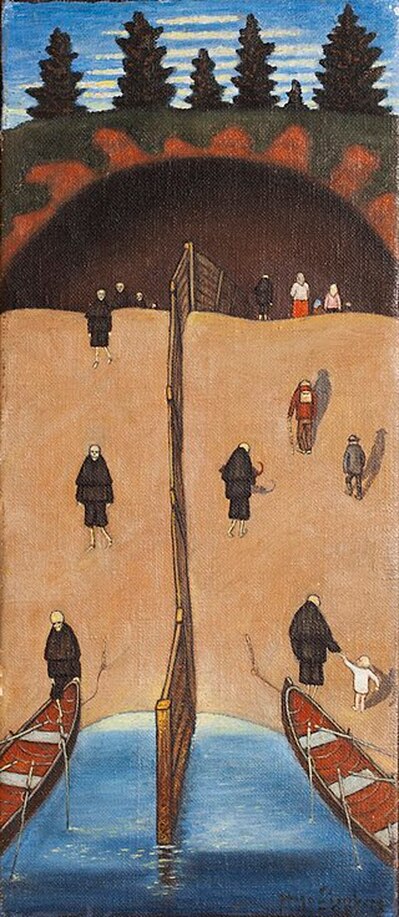
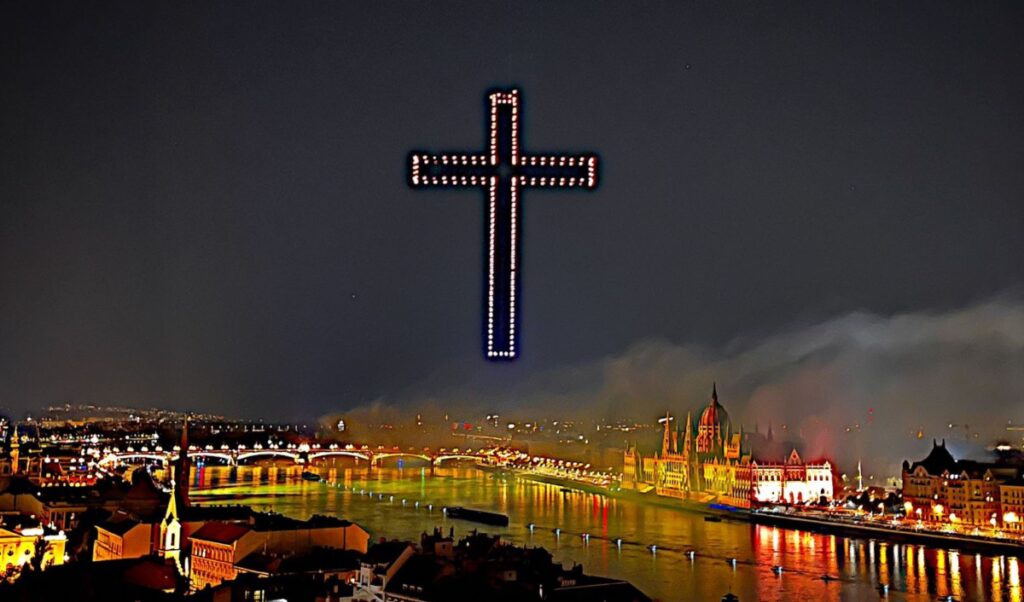
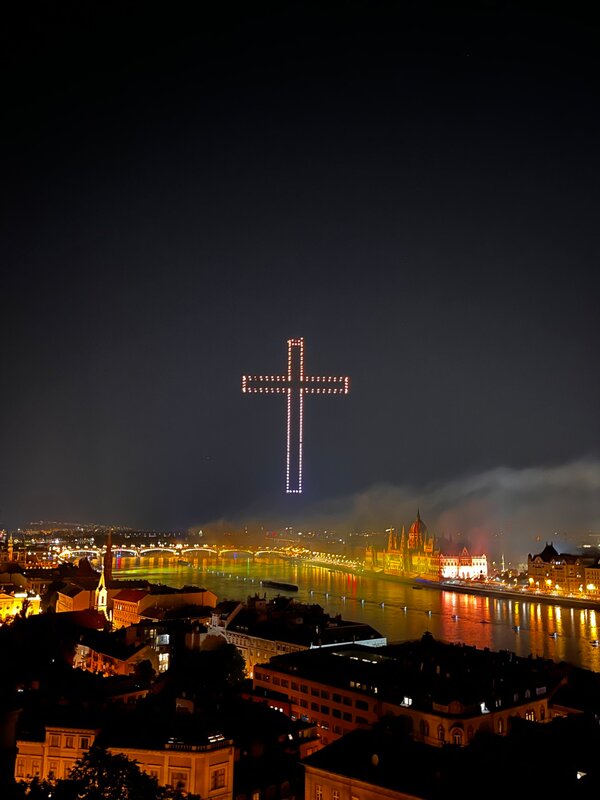
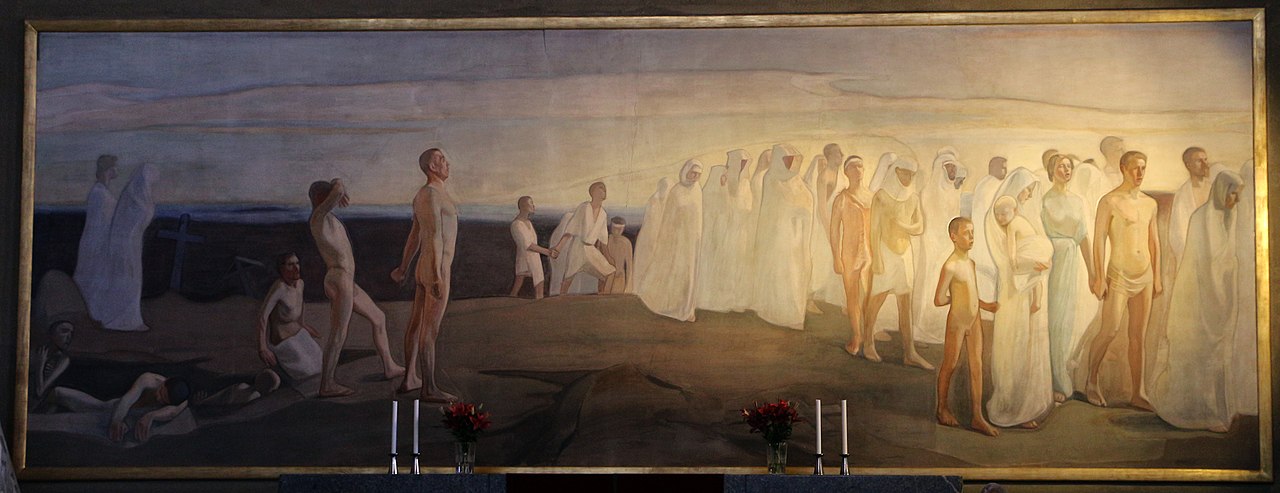
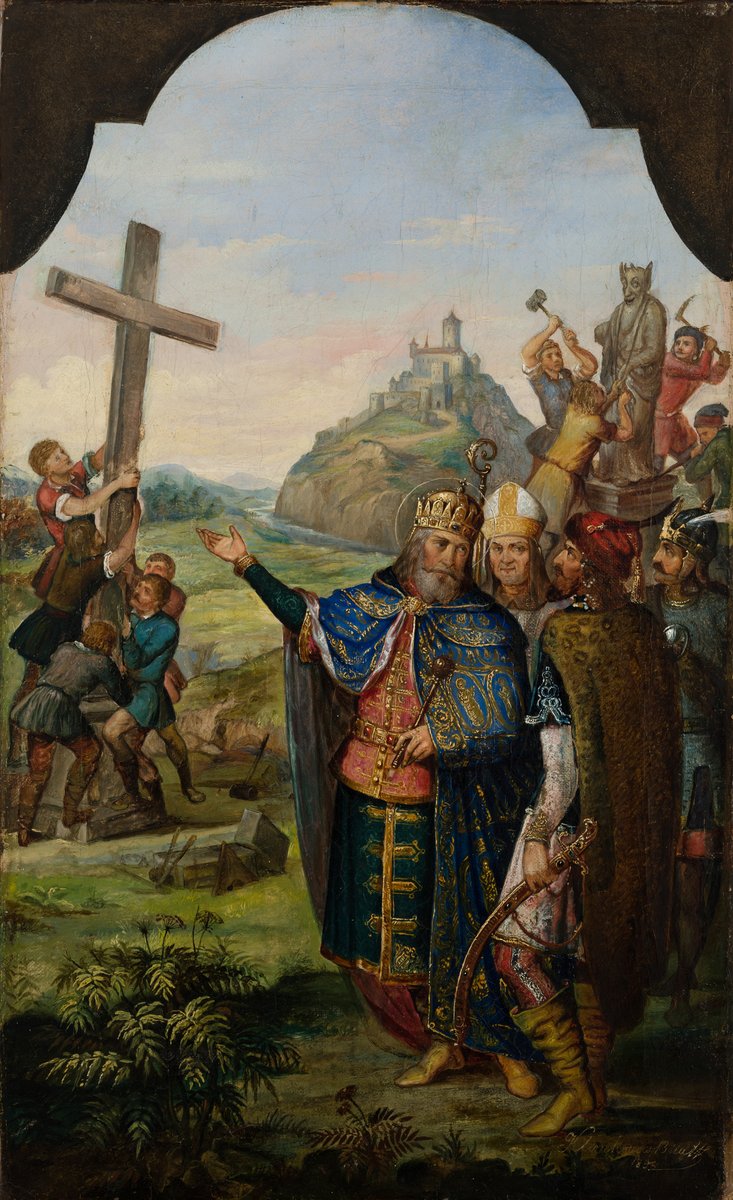
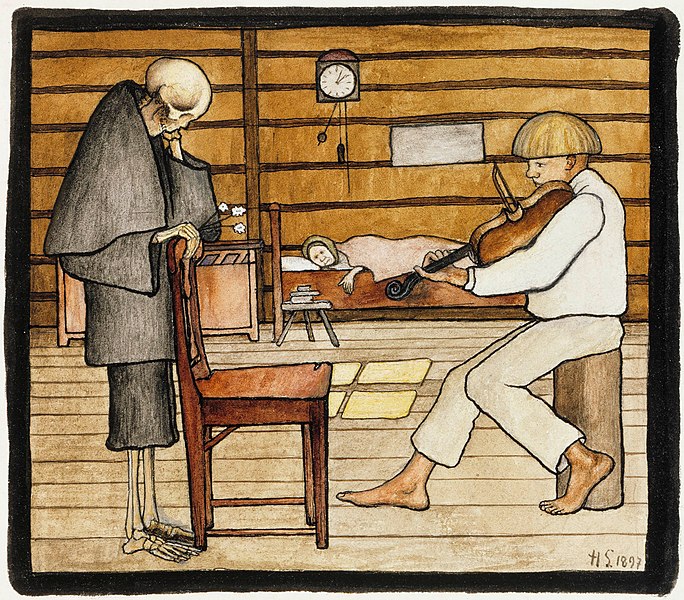

 RSS Feed
RSS Feed

